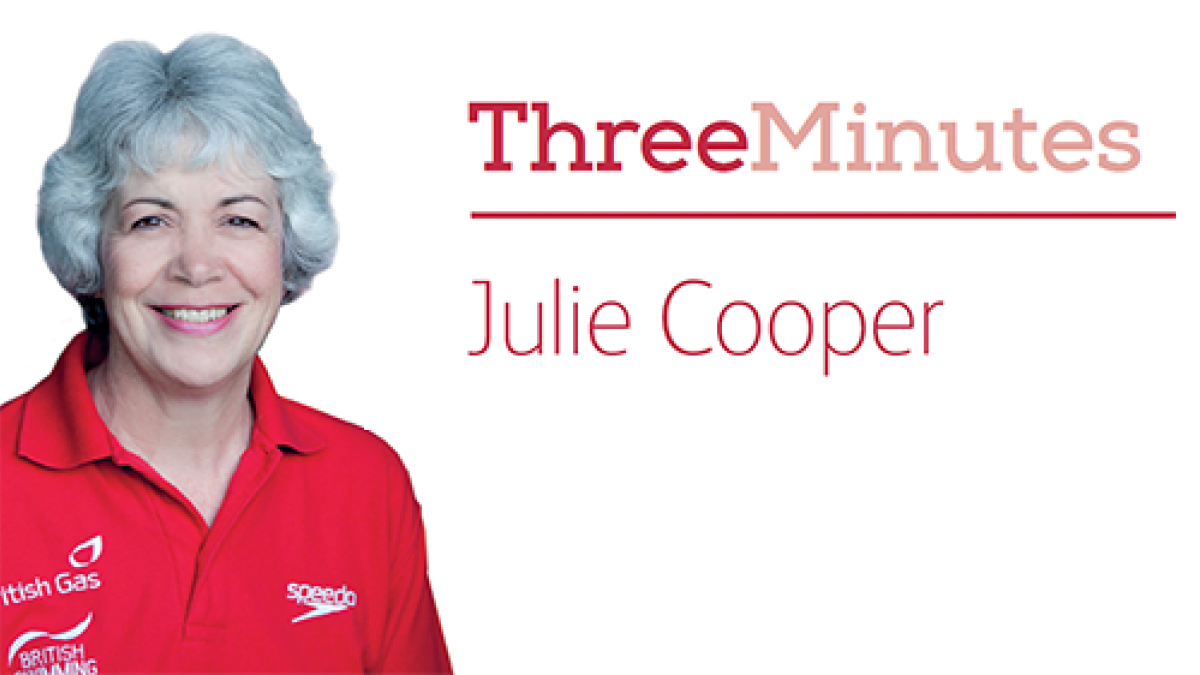Community physiotherapist Julie Cooper will be volunteering at the 2015 International Paralympic Committee Swimming World Championships, which take place in Glasgow from 13 to 19 July.

What will be your role be in Glasgow?
Glasgow for me is a little bit different. I will be learning more about visual and intellectual impairment classification to support my existing knowledge of the physical side of classification.
I will assist the classification coordinator in welcoming the athletes and getting an overview of the classification process in the three impairment groups at a major championship. This will support me in my role as a member of the British para-swimming classification working group, developing the classification strategy, and potentially as an international chief classifier.
Usually at para-swimming events I volunteer as a medical classifier, working alongside a technical classifier (a swimming coach), assessing the athletes using a set of standardised swimming tests in order to place them in the correct categories, enabling a fair field of competition.
How did you get into being a classifier?
Firstly, it is important to note you need to have worked as a medical doctor or chartered physiotherapist for at least two years before you are able to train as a medical classifier. I have always had a passion for facilitating access to sport for all children with disabilities so I contacted the Hampshire and Isle of Wight disability sports officer and got involved with local multi-sport events.
In 2007 I was invited to train as a medical classifier for swimming in the south east region and after attending an International Paralympic Committee (IPC) course I became a trainee classifier. I classified regularly across the UK and was put forward for a subsequent training course in 2010 where I was promoted to an IPC Level 1 classifier. Additionally, I am now also involved in the selection and training of national classifiers in line with the IPC rules and regulations.
What are swimming’s benefits and how can disabled people compete?
Swimming is a sport for all ages and abilities and anyone can compete. However in order to be eligible for disability swimming competitions, an athlete must have a permanent and irreversible medical condition of a physical, intellectual or visual nature.
First and foremost it is really important that everyone learns to swim from an early age and to do this every public swimming pool will offer swimming lessons. Once able to swim and if interested in pursuing the sport further the next step is to join a local swimming club. This is where the competing really starts, ranging from inter club galas to national events and on to international events such as the Paralympic Games.
There are many benefits to swimming and they can be categorised as physical and psychological. Physical benefits include a full body aerobic workout, increased bone and muscle strength, improved flexibility and improved lung volume and proper breathing techniques. Psychological benefits are the increased social interaction through being part of a team; creation of an additional support network and improved self-esteem.
Do you give up leave for these duties?
The role is voluntary with all expenses paid. Most regional competitions are at weekends. However, classification for national and international competitions generally takes place in the week so I have to use my holiday.
How does your classifier role complement your day job?
I am employed by Solent NHS Trust as a band 7 community paediatric physiotherapist working as part of a multidisciplinary team caring for children with complex needs and their families. These roles complement each other as both require me to assess people’s capability in order to facilitate their participation in activities. My experience in neurology and paediatrics has also proved invaluable in classification as I am used to working with children with permanent disabilities. I have received a greater exposure to a wider range of conditions through classification which has increased my knowledge when treating children.
What’s the next event for you?
I will be classifying in Chengdu in September for the ninth China National Para Games, which I am very excited about. fl
- More information contact disability swimming.
Author
FrontlineNumber of subscribers: 1
